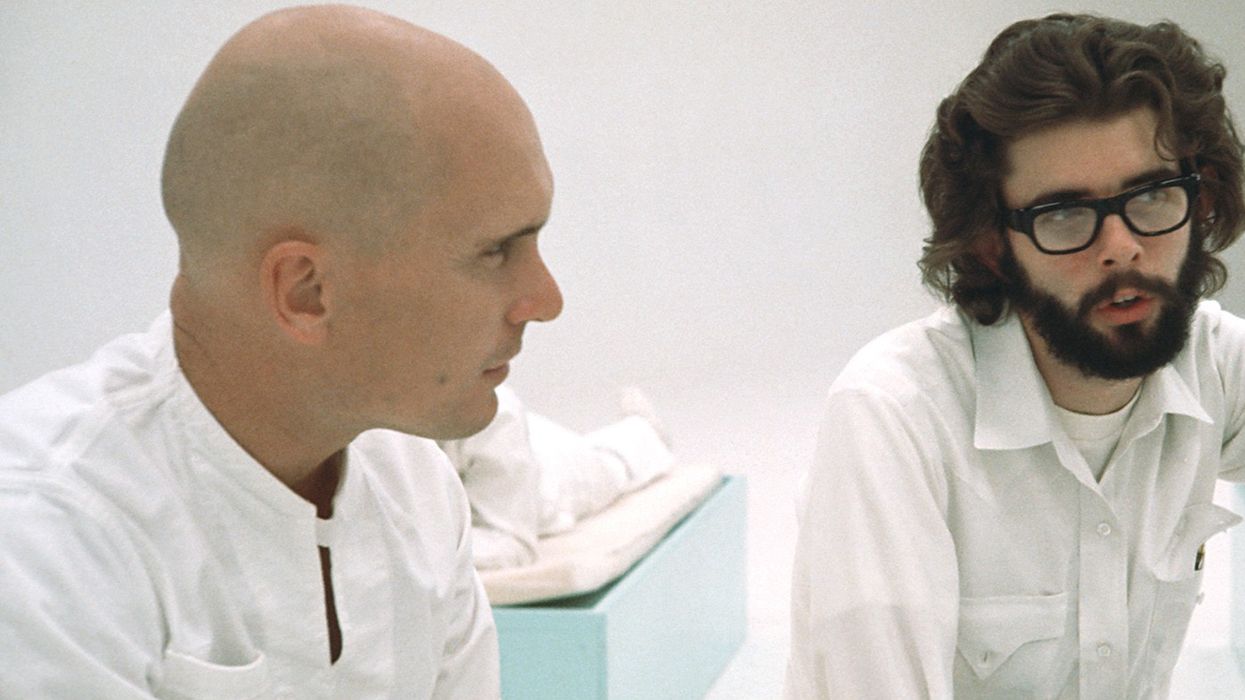How Did George Lucas' Theft Change American Science Fiction?
George Lucas put his foot down and paved the way for a bright future.

Hollywood is filled with stories about overzealous producers changing movies to make them "better" and actually destroying the vision of the writers and directors. We often hear about the losing side, but it's nice to uncover the story of a winner.
Especially when that winner is George Lucas. See, with a simple win on THX-1138, he was able to solidify himself as a voice in science fiction and go on to create Star Wars. This story comes from Inverse and takes us all the way back to 1971.
Lucas had just finished his work on THX-1138 and was proud of the dystopian science fiction film. But the producers felt very different.
This left Lucas in a bit of a conundrum. He had listened to and rejected many of the studio’s suggestions to improve the film. But problems were mounting. The studio was asking them to move scenes with the shell-dwelling characters from the end of the film to the beginning to excite the audience. Lucas did not agree.
According to Matthew Robbins, his collaborator and classmate at USC School Of Cinematic Arts, “The executives didn’t see the harm in what they were trying to force George to do. George was going crazy. He said they didn’t have the right to do that.”
They were at a standstill. Lucas needed the studio to release the film, but he wanted audiences to see it his way.
So what was Lucas to do? He had to formulate a plan, one which involved stealing his own movie!
Lucas snuck onto the Warner lot where the movie was being edited with his friends. He parked a van near the projection room, with the idea that once the workprint was shown to executives, he would steal the workprint out of the projection room so they wouldn't try to hire other editors to finish it.
So the movie played and Lucas sat and listened to notes. Meanwhile, his friend, future Hollywood legend Walter Murch, went to the projection room and posed as the editor there to pick up the film. The projectionist gave him the cans, picture, and sound without a question.
Murch put it all in the van, and then when Lucas was done with his contentious meeting, they drove off the lot with it together!
Of course, Warners could not edit it then, but they were still behind the movie's release. They didn't push it at the box office, and the movie flopped... but critics and audiences who saw it loved the film.
It garnered rave reviews and signaled a comeback for interest in science fiction on the big screen, even without making a lot of money.
But the effect of THX-1138 changed all of cinema in another more psychological way. See, after Lucas' film was rejected for being too bleak, dystopian, and for having a niche audience... Lucas set out to make a crowd-pleaser... which became American Graffiti.
That movie did gangbusters for 20th Century Fox and made Lucas the talk of the town. It allowed him to pitch another science fiction film. This one wouldn't have a niche audience this time. It would incorporate some of the things he learned on American Graffiti but have the daring futuristic ideas of THX-1138... and it would be called Luke Starkiller...
But hey, that was just his first idea.
Eventually, we wound up with Star Wars, which brought science fiction back into popular culture and changed the American blockbuster.
So I guess at the end of the day, protecting your idea at all costs can have a very positive outcome. Of course, it took Lucas making another studio a lot of money to get him back in everyone's good graces, so keep that in mind while you're standing up for what you believe in.
Still, Hollywood is built on bold people making bold choices, so if your gut tells you to go for the glory, maybe it is smart to follow George's example.
Let us know what you think in the comments.
Source: Inverse











